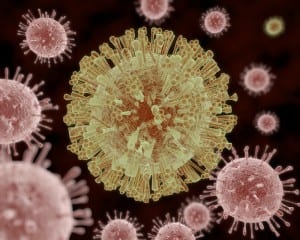Welcome back to this week’s edition of the Medical News Summary blog! This week’s blog will cover the latest highlights in health and medical news from the 18th to the 24th of January.
Number of Zika Cases Increasing in Brazil

This week in medical news, there has been a sudden increase in the incidence of Zika virus in Brazil that causes a rare brain defect in babies. Health officials in Brazil have linked the increase in cases to the mosquito-borne diseases and they plan to prevent a further increase by removing areas of stagnant water. The babies affected suffer from microcephaly. This causes them to have heads that are smaller than usual and brains that are not developed correctly. Often foetuses with the condition are miscarried, die during birth or die shortly after birth. Those who survive can suffer from developmental and health complications. In 2014 only 150 cases of microcephaly were recorded however, the latest figures show that 3,893 babies have been affected since October 2015. The sudden increase is thought to be caused by the outbreak of the Zika virus that is transmitted via mosquitos. Currently the mechanism by which the Zika virus causes microcephaly remains uncertain. Three Britons have contracted Zika virus after travelling in Colombia, Suriname and Guyana. Due to this, pregnant women have been warned not to travel to these areas. The virus if very unlikely to be transmitted from person-to-person.
Junior Doctors’ Strike Called Off
The 48-hour junior doctors’ strike that was due to take place on Tuesday has been called off by the British Medical Association. In the medical news related to the discussions over the junior doctors’ contract, it has been reported that there will be further talks taking place between the British Medical Association and the Government this week. Although the 48 hour strike has been cancelled, the planned strike on Wednesday 10th February could still go ahead if an agreement is not met. The strike on the 10th February will see junior doctors walk-out and not even provide emergency care. The contract is still being disputed over proposed changes to payment for weekend working, career progression and current safeguarding regulations to prevent hospitals over-working doctors.
Food & Drink Companies to Reduce Sugar Content
Following increasing pressure from Health Authorities and the public, several large food and drink companies have pledged to cut the sugar contents in their products. In the medical news this week, brands such as Coca-Cola, Pepsi and Kellogg’s have pledged to decrease the sugar content in their products. Major companies in the processed food industry say that they will introduce a number of measures to cut down on sugar, which they believe will help to reduce Britain’s overall sugar consumption by a fifth. Such measures include avoiding advertising to those under the age of 16 as well as introducing smaller and healthier products. However, the sugar levels within Coke (Coca-Cola’s original drink) are thought to stay the same. David Cameron will decide in a few days’ time whether to go ahead with the proposed sugar tax. The purpose of the sugar tax is to tackle obesity within the UK and the increasing incidence of dental decay in children.
Uploaded by Joelle on the 25th January 2016
